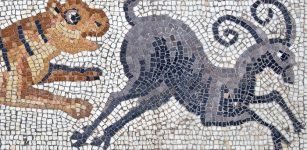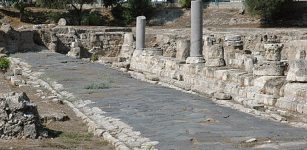Artifacts From Shakhi Kora Reveal The Rejection Of Early Centralized Governance In Ancient Mesopotamia
Conny Waters - AncientPages.com - Excavations at a 4th millennium B.C. settlement in Iraqi Kurdistan have provided groundbreaking insights into the origins of the world's earliest governing institutions. These findings suggest that such institutions may have emerged partly due to their ability to organize large-scale meals, possibly as a form of compensation for labor.
Interestingly, the subsequent abandonment of these centralized structures, without evidence of violent overthrow or environmental stress, indicates a conscious decision to move away from centralized organization—likely driven by growing dissatisfaction with top-down control.
Led by Professor Claudia Glatz from the University of Glasgow, an international team meticulously excavated and analyzed these structures at Shakhi Kora. Since 2019, this dedicated team has been conducting excavations at Shakhi Kora as part of the Sirwan Regional Project in collaboration with the Garmian Directorate of Antiquities in the Kurdistan Region of Iraq.
Credit: Antiquity, https://doi.org/10.15184/aqy.2024.189
This research not only enriches our understanding but also prompts us to reconsider how early societies navigated governance and control—a topic that remains relevant today.
"Our excavations at Shakhi Kora provide a unique, new regional window into the development, and ultimately the rejection, of some of the earliest experiments with centralized, and perhaps state-like, organization," states Professor Glatz.
The research team explained that the excavations at Shakhi Kora have revealed a fascinating sequence of structures that span several centuries, illustrating a significant cultural evolution. Initially, the artifacts discovered reflected local traditions, but over time they began to show strong connections with Uruk, one of the world's earliest cities located in southern Iraq. This city was notable for its large-scale monumental precincts in the late 4th millennium B.C. and is famous for yielding thousands of clay tablets containing some of the earliest written texts.
At Shakhi Kora, researchers uncovered numerous simple, roughly made bowls within institutional structures. These are similar to those found at Uruk and other contemporary sites across the region. The presence of these bowls suggests they were used for serving large communal meals, likely catering to workers who were either dependent on or associated with these institutional households.
Stacks of upturned beveled rim bowls on the floor of the Phase 3 space in Area I. Credit: Antiquity, https://doi.org/10.15184/aqy.2024.189
Further analysis involving animal bones and stable isotope results, along with organic residue analyses from lipids trapped inside ceramic vessels' walls, indicates that these communal meals often consisted of hearty meat stews. These findings suggest that part of Mesopotamia's state formation and institutional development can be attributed to their capacity to provide sustenance to a broader community.
Cooking and serving area to the east of the pillared hall (A) and a storage area to the west (B). Credit: Antiquity, https://doi.org/10.15184/aqy.2024.189
Additionally, evidence from deposits indicating ritual activities may highlight another crucial function within this early societal framework.
Aerial view of the 2023 exposure in Area I at Shakhi Kora. Credit: Antiquity, https://doi.org/10.15184/aqy.2024.189
"Shakhi Kora and the results of ongoing excavations there are providing critical new data that allow us to better understand this important period in Iraqi Kurdistan," Salah Mohammed Sameen, the director of the Garmian Department of Antiquities and Heritage says.
See also: More Archaeology News
The eventual abandonment of the last institutional building at Shakhi Kora, without evidence of violent destruction or environmental pressures, suggests a conscious decision by the local community to move away from a centralized system of authority and resource distribution. This observation challenges the notion that the emergence of powerful, hierarchical governments was an inevitable or uncontested development in early complex societies.
"This reaffirms that top-down, hierarchical forms of government were not inevitable in the development of early complex societies," concludes Professor Glatz. "Local communities found ways to resist and reject tendencies towards centralized power."
The study was published in the journal Antiquity
Written by Conny Waters - AncientPages.com Staff Writer


























